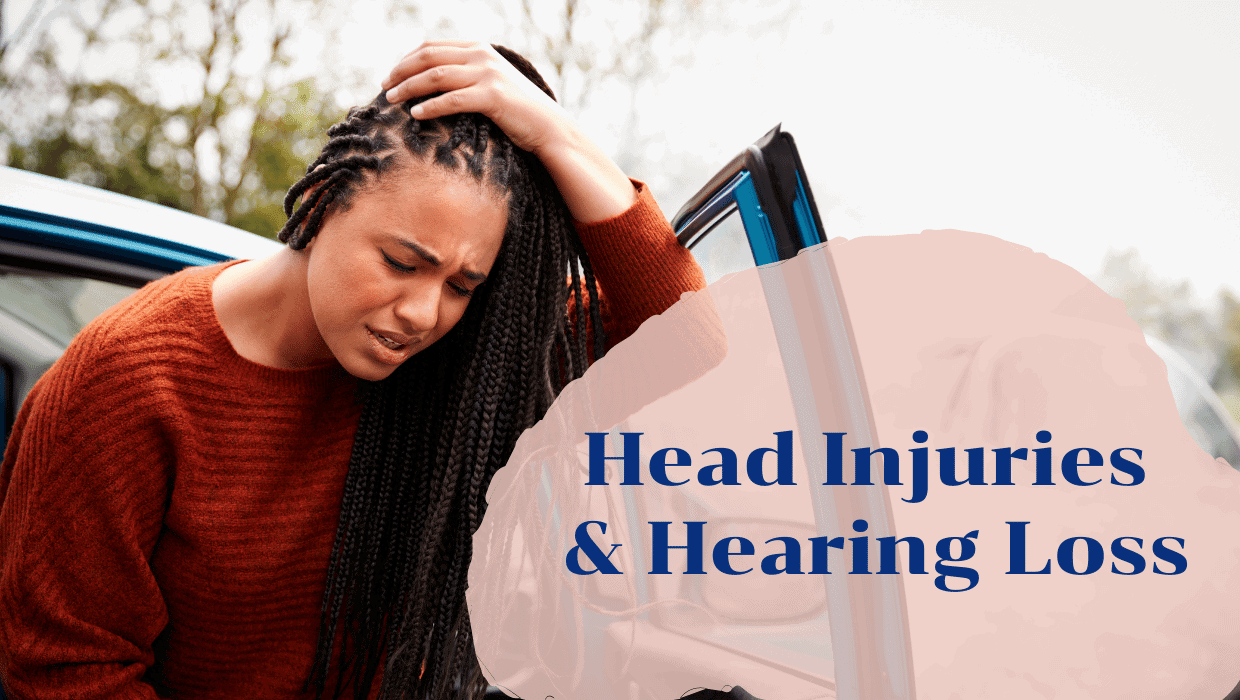
When you think about hearing loss, the most common image that comes to mind is age-related hearing loss. Indeed, most people who lose their hearing are in the golden years. In combination with noise-induced hearing loss, these forms are quite common, and most people who are fortunate enough to reach an age beyond 70 years will have some form of hearing loss.
Although our image of hearing loss tends to focus on this common context, this is by no means the only way that hearing loss can occur. One of the many causes of hearing loss is a Traumatic Brain Injury (TBI).
In order to better understand the relationship between hearing loss and TBI, let’s first take a look at the context of TBI, proceed to consider the way that hearing loss can be caused by TBI, and finally think about prevention of both conditions.
What is a Traumatic Brain Injury?
The Centers for Disease Control measures that there are at least 1 million cases of TBI that lead to hospitalization each year in the United States, and there are a total of 3 million cases of head injuries in general, including mild concussions. With such common statistics, you might wonder what exactly qualifies as TBI.
In general the traumatic nature of brain injury is any compromise in the normal function of the brain that can be caused by a bump, blow, or jolt to the head, or penetrating head injury. The nature of these injuries are quite varied. Sports are some of the most common causes of TBI, and recent cases in the news have drawn attention to American football as one very risky contact sport when it comes to TBI.
Other common causes include motor vehicle accidents, assaults, gunshot wounds, and blasts. The nature of traumatic effects can be varied, ranging not only from neurological disturbances—including motor, sensory, sleep, and sexual functioning—to cognitive impairment, most notably memory loss, language comprehension, problem solving, and decision making.
TBI can also extend into personality, behavior, and lifestyle consequences, such as unemployment, academic achievement, and interpersonal struggle. As you might expect, within the category of sensory impairment, TBI can cause hearing loss.
Traumatic Brain Injury and Hearing Loss
In some cases, the causal link between TBI and hearing loss is a direct, physical chain reaction. The sudden and violent nature of the injury can cause damage to the auditory pathway somewhere between the outer ear and the auditory nervous system. This physical damage ranges in severity, and it also ranges in the duration of the injurious effect.
In addition to a direct physical domino effect between an injury to hearing loss, the sound associated with the event that causes TBI can also cause noise-induced hearing loss. Consider, for example, a car accident. Although TBI can be caused by the crash, the noise of that event can cause hearing loss that is not a direct effect of physical damage, as well.
Preventing Both Traumatic Brain Injury and Hearing Loss
Although many incidents of TBI are unavoidable, one of the most important steps you can take to prevent TBI is to wear protective headwear during sporting activities. Not only should protective gear be in place, but it also must be worn properly affixed and fitted snugly to the head.
Wearing a helmet and protective equipment is not only necessary for sports but also for other recreational activities such as biking, motorcycling, and riding ATVs. Preventing TBI can be an indirect way to prevent hearing loss, as well. If you are exposing yourself to risky environments for TBI, you might be exposed to risks of hearing loss, as well.
For instance, riding these recreational vehicles such as motorcycles or ATVs are not only dangerous for the integrity of your head but also for your potential exposure to noise. When you are in an environment such as this, don’t stop short at protecting your head from injury but also consider if hearing protection is necessary.
Even basic, disposable foam earplugs can do a lot to protect hearing in these environments, so the combination of a helmet and earplugs can put you in the best position for ongoing brain and hearing health.
